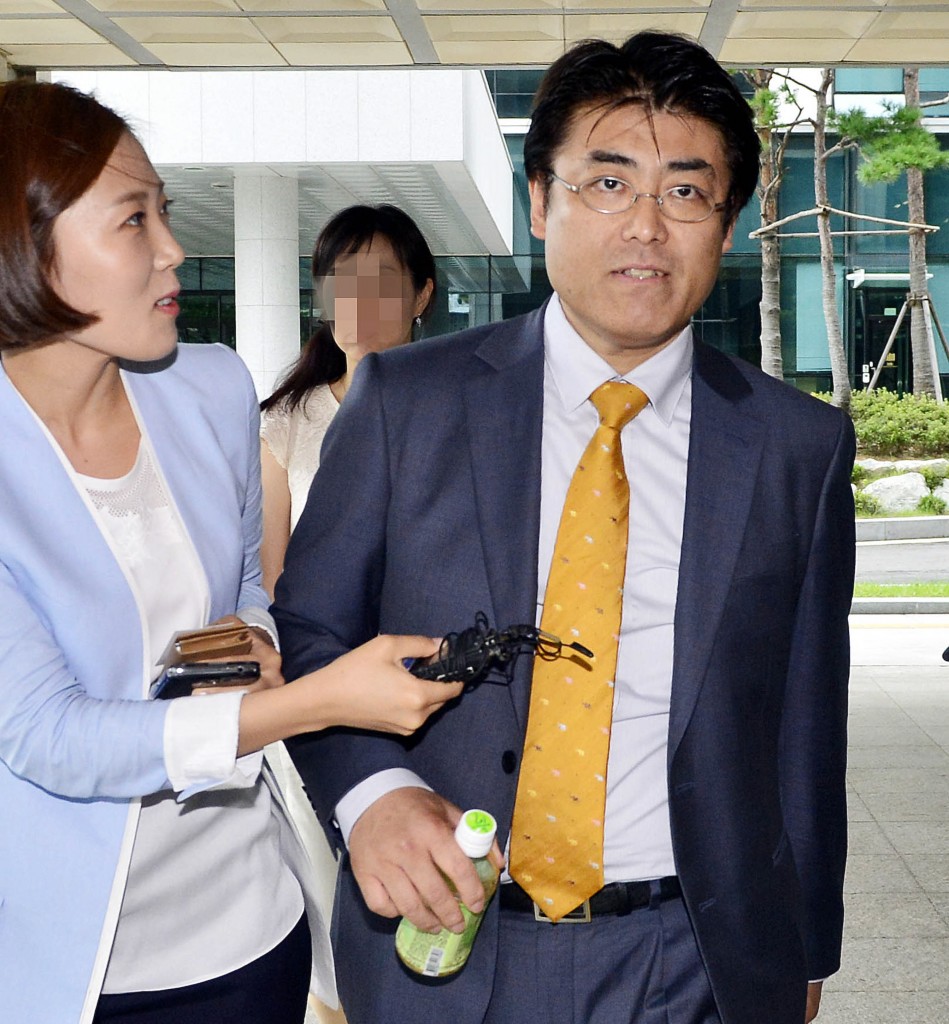- California Assembly OKs highest minimum wage in nation
- S. Korea unveils first graphic cigarette warnings
- US joins with South Korea, Japan in bid to deter North Korea
- LPGA golfer Chun In-gee finally back in action
- S. Korea won’t be top seed in final World Cup qualification round
- US men’s soccer misses 2nd straight Olympics
- US back on track in qualifying with 4-0 win over Guatemala
- High-intensity workout injuries spawn cottage industry
- CDC expands range of Zika mosquitoes into parts of Northeast
- Who knew? ‘The Walking Dead’ is helping families connect
18-month jail term sought for Japanese journalist charged with defaming S. Korean president

Tatsuya Kato, right, head of the Seoul bureau of Japan’s Sankei Shimbun newspaper, was indicted on defamation charges. (NEWSis)
SEOUL (Yonhap) — Prosecutors sought an 18-month jail term on Monday for a Japanese journalist charged with defaming President Park Geun-hye in print.
Prosecutors argued that Tatsuya Kato, former Seoul bureau chief for Sankei Shimbun, knowingly published groundless rumors in August last year that Park might have been with her former aide, Jeong Yun-hoe, at the time of the sinking of the Sewol ferry, one of South Korea’s worst peacetime disasters on April 16, 2014, and that Kato had clearly intended to slander the South Korean president.
The sentencing is scheduled for Nov. 26.
Prosecutors also noted that there was no evidence that the rumors on Park’s whereabouts on the day of the ship sinking were true, and that Kato simply wanted to write about Park’s relationship with a man in the name of public interest.
They added that Kato made no efforts to verify those rumors and hasn’t been able to provide evidence to suggest they could actually be true, other than a column in Chosun Ilbo, South Korea’s largest newspaper.
The South Korean column in July last year said Park’s whereabouts on April 16, 2014, were unknown for seven hours, sparking rumors that she might have been with a man at an undisclosed location.
The Seoul Central District Court earlier concluded that the rumors Kato reported in August are groundless.
In a Sankei Shimbun article published April 7 this year, Kato said he had no intention of disputing the charges leveled by prosecutors.
In his testimony Monday, Kato said at first he’d recognized rumors about Park’s whereabouts “as facts” after double checking on them, but later corrected himself and said he was only aware that such rumors had been circulating.
Kato also said he merely wanted to provide an objective report on the Korean society and politics because the Japanese people take a great interest in Park, and stressed that he had no intention to defame the president.
















